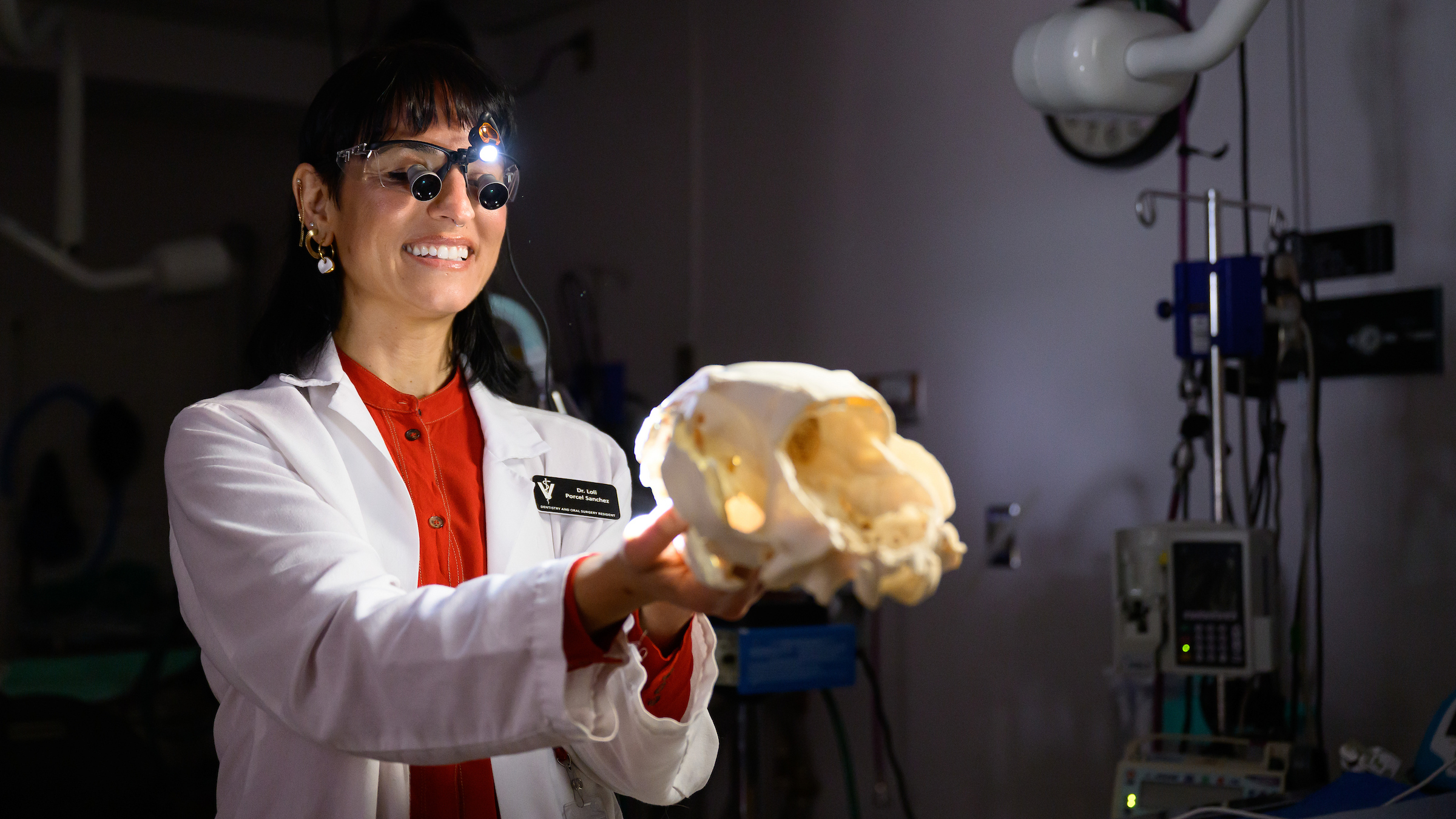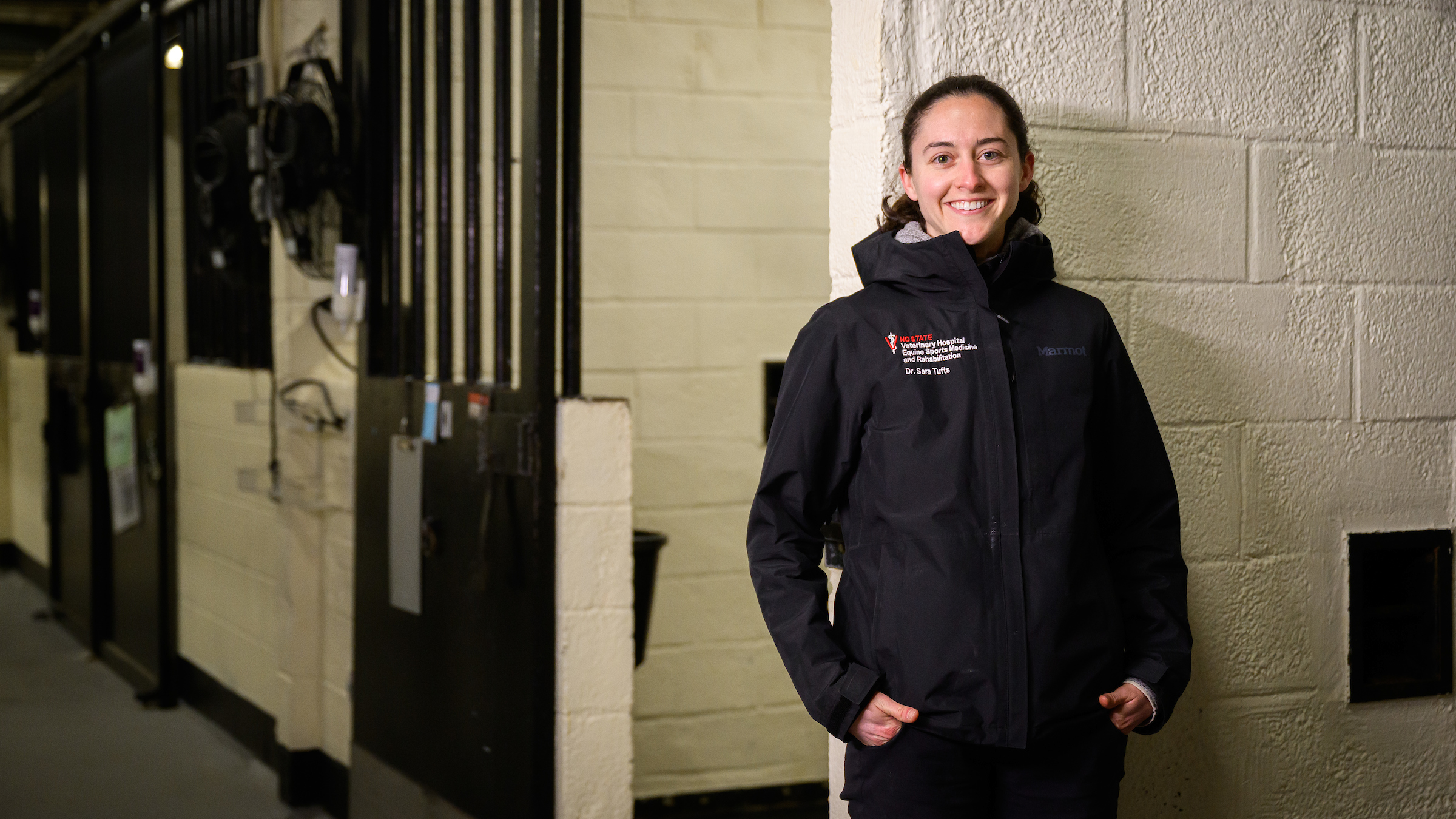House Officer Highlight: Veterinary Resident Today, Professor Tomorrow
Second-year resident Dr. Cody Atkinson takes advantage of two unique programs at the NC State College of Veterinary Medicine to elevate his internal medicine expertise, contribute to the specialty and educate others.
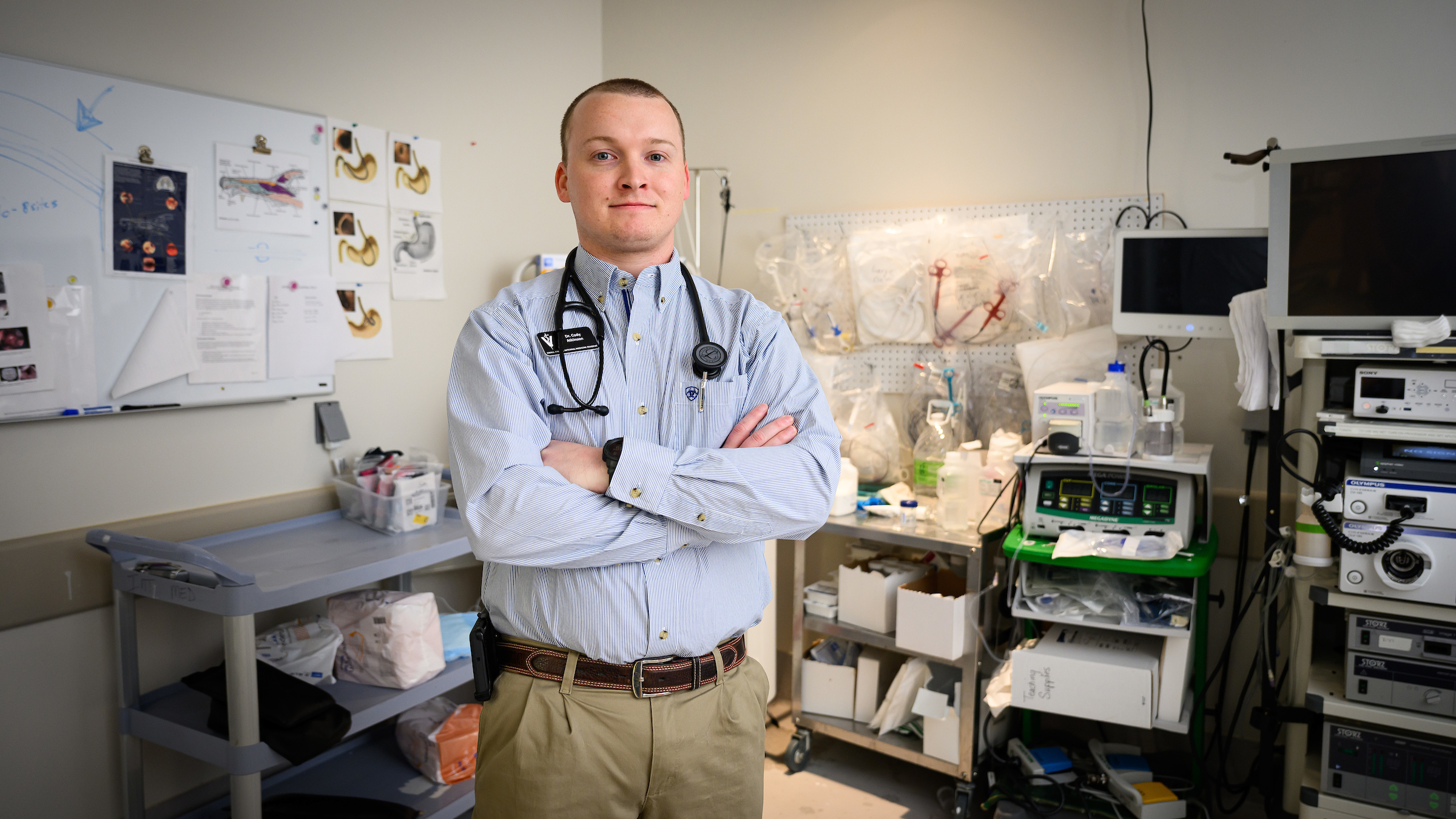
Some veterinary trainees sprint through their years of veterinary school, eager to clear the classroom and leave didactic learning behind. Dr. Cody Atkinson is not one of those people.
After completing a small animal internal medicine internship at NC State last summer, Atkinson chose to stay at the College of Veterinary Medicine for at least five more years. He is one of four residents enrolled in a unique graduate offering, called the Internal Medicine Clinician Investigator Program, that combines clinical residency training with a research-based Ph.D. curriculum.
Academia is where Atkinson thrives, and he aims to make a career out of taking the life-saving breakthroughs that he helps discover through clinical and benchtop research into the classroom to educate future generations of veterinarians.
To achieve that goal, he joined the first cohort of NC State’s Veterinary Academic Leaders, or VAL, Program, a training ground for residents interested in becoming faculty clinician-scientists. The program sets up Atkinson and his fellow cohort members for success as veterinary schools nationwide expand to address caregiver shortages.
“I find a lot of satisfaction in teaching,” says Atkinson, who helps instruct fourth-year DVM students completing clinical rotations in NC State’s Veterinary Hospital. “A lot of questions come up in clinics, and you go to the research and literature but the answer isn’t there. Having both the clinical and research training enables me to say, ‘This is where there’s a gap, and this is how we could progress that knowledge,’ and then hopefully fill that gap.”
Growing a career in North Carolina was a big step for the lifelong Texan, who says his move in 2022 took him the farthest he’d ever been from his hometown outside Waco. His courage paid off: NC State’s community has given Atkinson, who worked hard to find his place in veterinary medicine, a welcoming home away from home.
All Roads Led to Academia
Though he’s a habitual planner now, Atkinson admits he didn’t always have his future mapped out. Around his senior year of high school in Robinson, Texas, when family, friends and teachers began asking what his career plans were, he started shadowing a local mixed practice veterinarian to see if clinical work was for him.
Atkinson began seriously pursuing veterinary medicine as an undergraduate, starting at a community college and transferring to Texas A&M University. He graduated with his bachelor’s degree in 2017 and began working as an assistant at a small animal emergency clinic in Waco when he didn’t get into vet school on his first try.
His experience at that clinic, and at another small animal hospital in general practice, helped him determine his species focus, and he was admitted to the Texas A&M School of Veterinary Medicine in the following admissions cycle.
“I had some excellent professors there,” Atkinson says. “They were the best part of my vet school experience, just some wonderful people who really put a lot into their craft of teaching and cared about students and their learning process.”
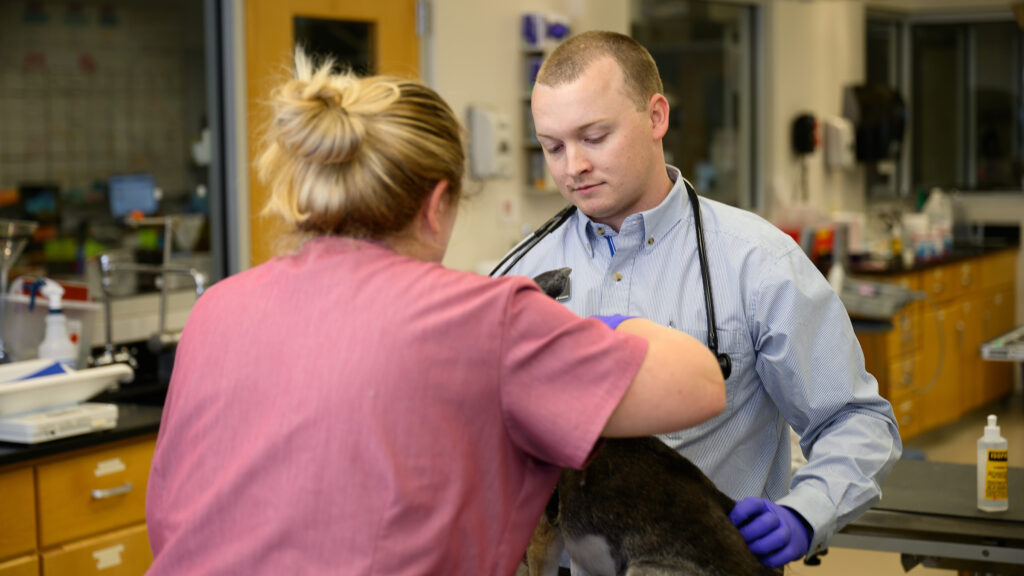
At Texas A&M, he worked closely with professors and tried his hand at teaching through a position as an anatomy lab assistant. It wasn’t long before he realized he’d found his niche as he incorporated the instruction styles of faculty he admired into his own lessons.
During his fourth year, he determined that he wanted to pursue a specialty internship to take his medical understanding to the next level.
“What I really enjoyed about medicine was taking those complex cases and trying to piece that puzzle together,” says Atkinson, who graduated with his DVM in 2022. “And when I leaned into doing an internship, that led me down the internal medicine route. The breadth, diversity and complexity of cases that internal medicine offers were always really appealing to me.”
Internal medicine involves the diagnosis and management of chronic diseases. Atkinson says he pursued NC State’s internship because of the College of Veterinary Medicine’s reputation for having a high-quality program.
He found the first months of his internship challenging as he transitioned from student to clinician and adjusted to being far from family and friends. Once Atkinson regained his footing, his appreciation for practicing internal medicine grew, and he began looking into residencies.
Clinician-Researcher and Professor-in-Training
Only a handful of veterinary schools offer clinician investigator residencies, and fewer still include a component expressly dedicated to developing future veterinary educators. NC State’s Clinician Investigator Program was the only residency Atkinson found that met every one of his training goals.
The program is highly selective, naming just 33 participants since its inception in 1984. Its alumni have gone on to practice at specialty clinics, work for prominent research institutions and teach at veterinary schools across the country.
“Cody is an incredibly intelligent and thoughtful clinician,” says Dr. Adam Birkenheuer, director of small animal internal medicine residency programs. “He has incredible problem-solving skills and attention to detail, which make him very well suited for a career in academia as a clinician scientist.”
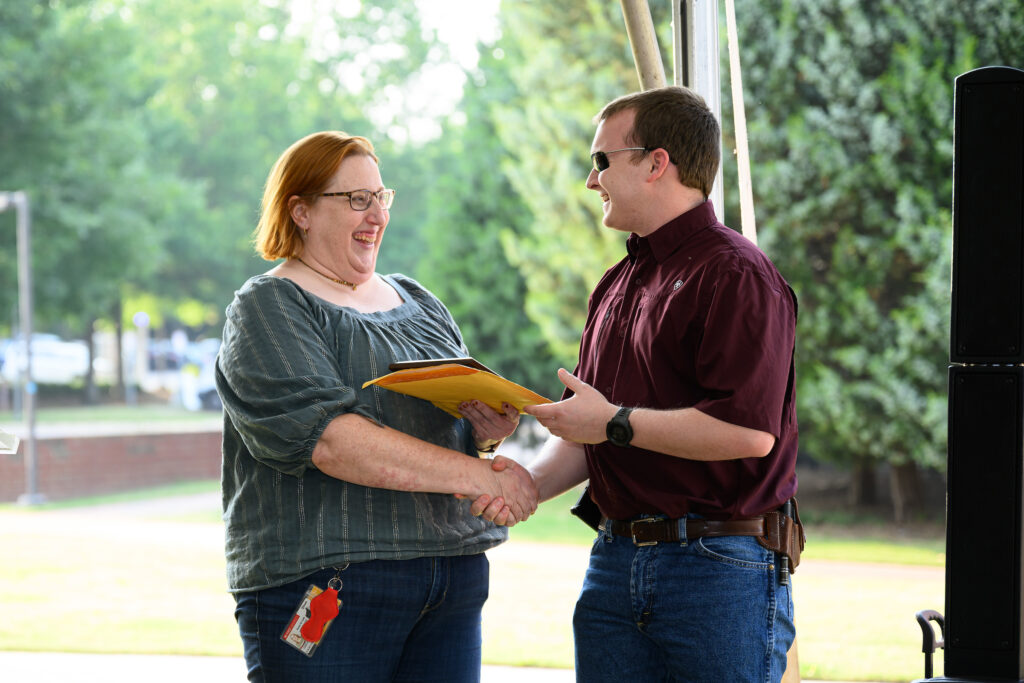
Atkinson is currently completing his clinical requirements but is exploring his research interests to narrow the focus of his Ph.D. He plans to work with Dr. Jody Gookin, Fluoroscience Distinguished Professor of Veterinary Research Education, to investigate a condition called gallbladder mucocele, which involves abnormal mucus accumulation in the gallbladder.
“Dr. Atkinson has a natural ability to translate clinical questions and clinical problem-solving skills to scientific thinking in the research laboratory,” says Gookin, who, like Birkenheuer, is also a graduate of NC State’s Clinician Investigator Program.
The VAL Program is another valuable source of mentorship and camaraderie for Atkinson at the College of Veterinary Medicine. Program leader Dr. Joshua Stern, associate dean for research and graduate studies, guides participants through establishing careers in academia, from compiling job applications to grant writing. Participants also receive funding to conduct, publish and present their research.
“My plan before getting involved in the VAL Program had been, ‘I want to work in an academic position,’ and what that really looked like was a bit of a black box,” Atkinson says. “Having an insider like Dr. Stern to shed light on that process has been incredibly beneficial to learn what it looks like here at NC State and elsewhere, and I look forward to exploring those opportunities.”
This article is part of a series featuring house officers across the NC State College of Veterinary Medicine and Veterinary Hospital. Click here to find previous House Officer Highlight stories.

